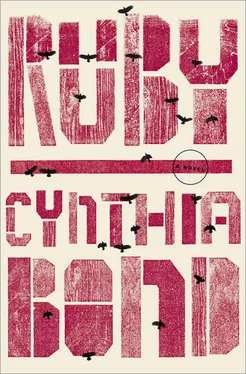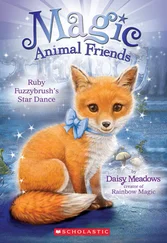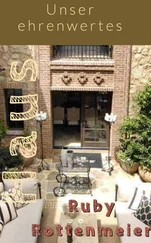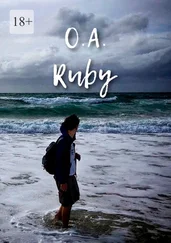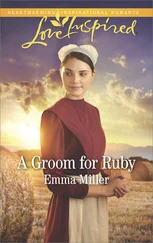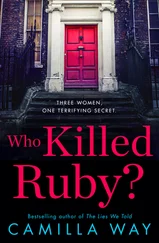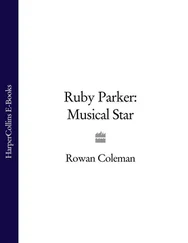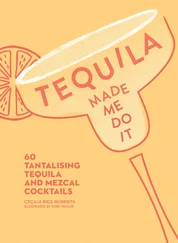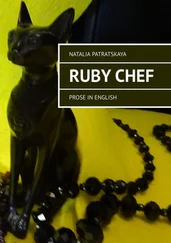It hadn’t been difficult for Ruby Bell to find the ripe center of the city. Having never fully entered the house of her body, she had no difficulty finding boarders. Mr. Hubert Malloy was the first man to offer her ten dollars and change for sex. She had been sitting in Brewster’s, a small jazz piano bar in the mid — West Twenties, listening to a tepid rendition of “Lush Life.” That morning, Ruby had spent six of her remaining twelve dollars on the brushed satin dress that cinched midnight at her waist. She sipped water with an olive and a wink, until Mr. Hubert Malloy joined her.
He was a fur merchant whose second-floor business peered across Seventh Avenue to Penn Station. Monday through Friday he watched women and men crowd into its belly at dinnertime. Today he had stayed late and watched his mother-in-law, his wife’s son from her first marriage, and his wife Bea, swarm down with them to the A train, Far Rockaway bound. He had entered the bathroom near his office, wetted a ball of toilet paper and wiped himself extra clean below. Then made his way to where Colored girls and White pretended to be equal in the creamy black hollow of a basement bar.
He had slipped his hand onto the small of Ruby’s back and when she hadn’t moved it, even to see who he was, he knew he’d found his girl. He was too round and belted to be hip, but the dark gave him courage. He’d bought her a Manhattan, because she said she’d never had one, and he fucked her two hours later by a threaded Blaster machine, mink pelts half stitched under its needle. Feet swinging inches above discarded black pumps. Bent at the waist, breasts scrunched against the giant spool of thread. Panties school girl white. No stockings. The scent of cured skins beside her white fingernails. He loved the feel of her. Nasty black and tight. The way she arched her young buttocks to allow him. The way her head never turned when he farted low and sticky. How he pulled her then to the floor upon scraps of rabbit and wolf, her face almost in the dustpan. Mouth open on still hide. She had no tits. Her padded bra lay like small lace hills on the ground beside her. It had been his one disappointment. But she was stringy and astringent and felt like a young boy with lipstick smeared down his throat. She was a nigger drag queen with a pussy. So it was easy to fuck her mouth and her anus. She opened to all of it and drank in his wadded semen. He gave her a rabbit stole and a whiskey kiss on her cheek. After. He pressed a folded ten-dollar bill to her palm, wrapped neatly around a “Bea’s Furrier” card. Then he gave her two bits — a quarter, “for fare home,” he explained. “Ten cents to spare.”
It was the easiest money Ruby had ever made.
Ruby walked home. She carried the quarter close to her, then opened her palm. The word “Liberty” hung like a banner over the White man’s head, which made it easy for Ruby to know whom it was promised to. Both word and coin. With God’s trust and blessing.
Then she thought about the other Liberty, her Liberty. Red roads and piney woods. The sun yawning across the Texas sky, too tired to keep pace with the rolling earth. She thought about the Carolina South , which had taken her to Manhattan, the same train that had taken her mama seventeen years before. But her mother had chosen to pass. She’d stepped on Colored and walked off White in New York, shedding Liberty along the way, including her Blackness, her papa and a brown-skinned baby named Ruby Bell.
Ruby was constantly amazed by the gush of life pressing against her on the street. The theater marquees towering over her head. The bands plunking away on corners, crooning jazz, Southern blues and swing. The scream of taxi drivers, the sounds of rubber on concrete and hundreds of feet landing on pavement, then pushing off again with purpose. The eyes that raked over her, some approving, some not. The crush of Colored and White pressing shoulder to shoulder on streets, buses and subways. The enormous billboard with a stunning Negro woman named Katherine Dunham surrounded by Black men in feathers and masks, books standing tall in shop windows with the brown-skinned writers Richard Wright, Gwendolyn Brooks and J. Saunders Redding smiling back. And the people! Sure Ruby passed Colored men and women with their heads bowed, dressed as maids in loose overcoats, or men in coveralls with ashen, scraped hands. But there were also the immaculately groomed Negro women in matching olive skirts and scarves, cigarette holders and poodles on green leashes, hair coiffed and pressed perfectly under leaning hats. There were dapper chocolate men in brown velvet suits with piles of books stuffed under their arms. Along with hot dog vendors and pretzel men who glared at her, there were also thin White men with goatees who smiled warmly at Ruby and young, young White men with shaggy hair and baggy slacks and stark women in loose skirts, passing out pamphlets about socialism and social reform, looking her right in the eye and inviting her to meetings. Ruby was lost and found, all at the same time. She scanned the many, many faces as she had for five months, looking for the red hair, cream skin and green eyes of her mother, Charlotte Bell, like the painted photograph that had lived above Papa Bell’s mantel. She felt her mother there, closer to her than air, on the periphery of her gaze. Since Ruby had arrived she followed each woman she spotted with red hair until she saw her face. This hope kept Ruby in Manhattan after months of fruitless searching, that and a new seeded liberty, a sharp-edged freedom that seemed to have taken root inside of her when she first arrived in the city.
Ruby held the furrier’s coin tighter. When she reached the maid’s room she rented in the Roger Williams Hotel on East Thirty-first she clinked the man’s quarter into an empty Band-Aid tin in the medicine cabinet, behind the aspirin and the Dixie Peach.
After the furrier, Sherman Monty, the owner of Monty’s delicatessen on Fifty-third, gave Ruby a case of provolone and five dollars for a blow job. The night manager of the Roger Williams Hotel gave her free towels and sheets for the use of Ruby’s hand and her bottle of lotion. Her neighbor Mr. Moskowitz gave her five pairs of panty hose for Vaseline sodomy. She gathered their change as well.
Ruby thought about walking along the Hudson, but the other women had razors, better shoes and pimps. She had seen the women on corners, dangling like coat hangers — wearing deep V-necks, red bandannas around their necks, and purple bruises barely hidden from view.
Unwilling to trade sovereignty for the brutality of protection, she passed three years walking into bars where, sitting on silver gray stools, she could hide her feet in the shadow of the bar. She learned what to wear, how to speak, and shifted and slipped into and out of the mouths of men and darkened her beauty spot and lips and brows and uncovered the night Village throb. It was 1953. The hip and the beat crowd pretended to pretend that skin color was a frock you donned for the evening. Ruby was more than beautiful, causing men and women to pause in their stride, to bump into light posts and whistle long and low. She was younger than everyone and dangled easily and brightly from ears and throats. Until one night a stocky White woman at a table in Jim Atkins’s Restaurant invited her to Julia’s Place, a hidden, second-string lesbian club. There she learned about Swing Rendezvous, Stonewall, select house parties and the Pony Stable, where women in seersucker suits smoked like steam rising from a boiling kettle.
Ruby would never have discovered Page Three and Abby, had it not been for the ease of older women. Nothing to wash. No gummed knots to comb out of her hair. No lipstick cum on her gloves. And they were kind, most of them, and when they were not, how easy to defeat them. One glance at a man, a pair of slacks, a pillow of breath in the right direction and they crumbled. The slackest, firmest mountain would quake and the avalanche always brought compensation.
Читать дальше
